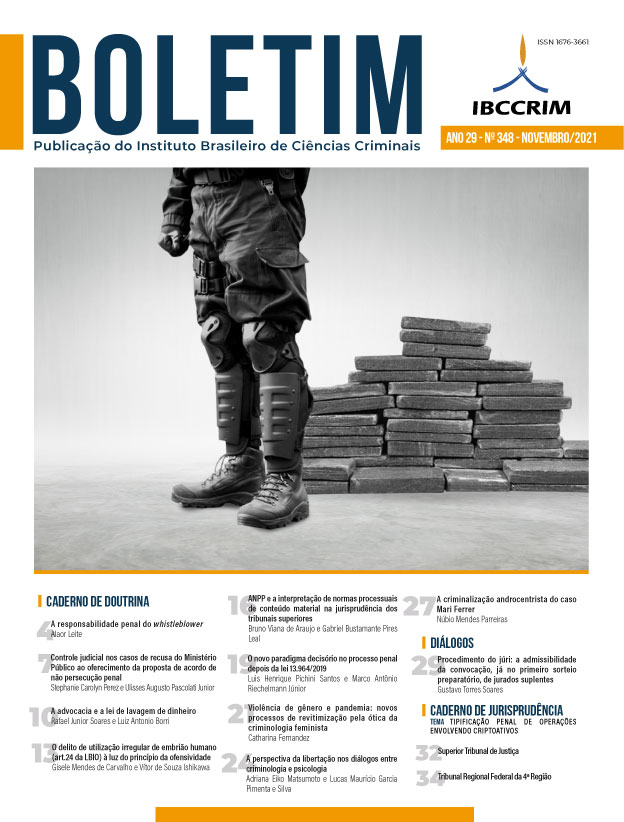Non-prosecution agreement and the superior courts' case law on procedural rules of material content
Views: 82Keywords:
Negotiating Criminal Justice, Retroactivity, Penal Law, Procedural LawAbstract
The so-called Non-Persecution Agreement, inserted in the Brazilian Criminal Procedure Code by Law 13.964/2019 (Anticrime Act), has raised a number of discussions in case-law and legal writings. This paper seeks to respond if a plea bargain can be reached in ongoing cases, in light of the tension between legal principles of novatio legis in mellius and tempus regit actum. We briefly analyse how Brazilian Superior Court of Justice and the Supreme Court have been addressing this issue, then recall the debate over an unconstitutionality lawsuit ruled by the Supreme Court in 1997 (ADI 1.719) to claim that the ANPP can be reached in ongoing cases, given the substantial legal nature of the procedural rule laid down in article 28-A of the Criminal Procedure Code.
Downloads
Publication Facts
Reviewer profiles N/A
Author statements
- Academic society
- Instituto Brasileiro de Ciências Criminais
- Publisher
- IBCCRIM
Downloads
Published
How to Cite
Issue
Section
License
Copyright of published articles belongs to the author, but with journal rights over the first publication and respecting the one-year exclusivity period. Authors may only use the same results in other publications by clearly indicating this journal as the medium of the original publication. If there is no such indication, it will be considered a situation of self-plagiarism.
Therefore, the reproduction, total or partial, of the articles published here is subject to the express mention of the origin of its publication in this journal, citing the volume and number of this publication. For legal purposes, the source of the original publication must be consigned, in addition to the DOI link for cross-reference (if any).


 Português (Brasil)
Português (Brasil)
 English
English
 Español (España)
Español (España)






